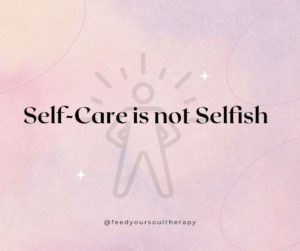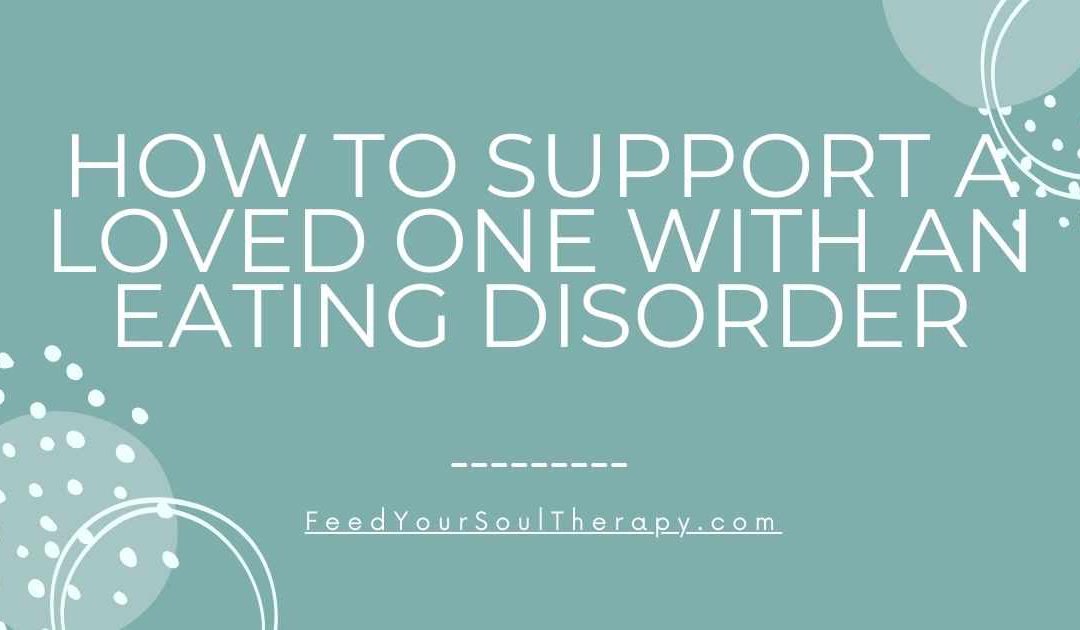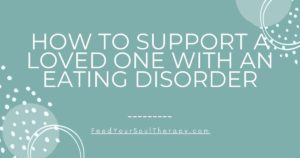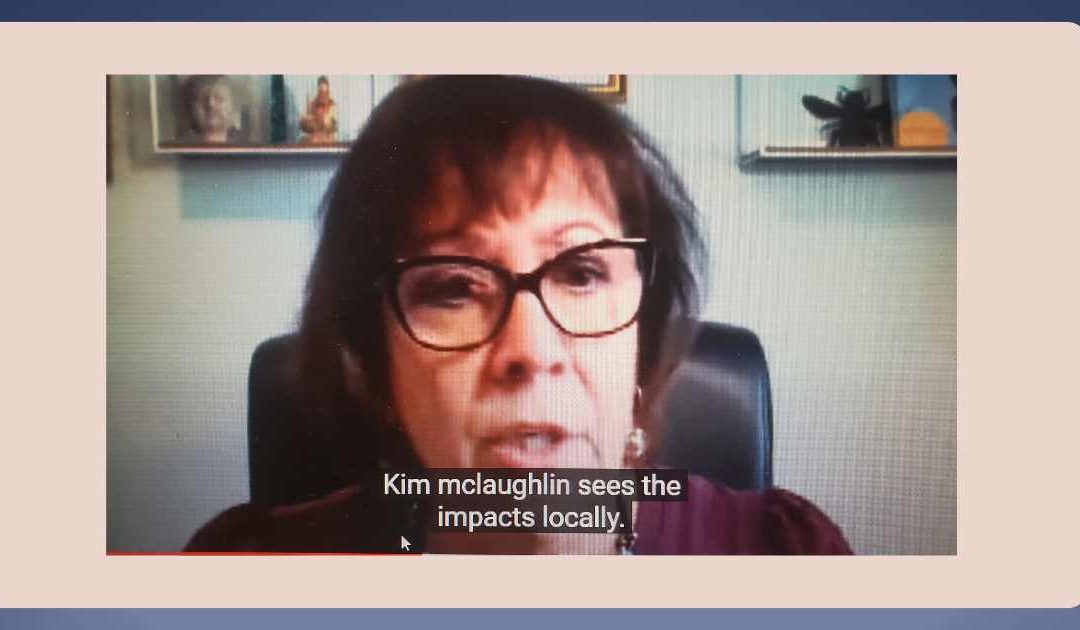
by KimMcLaughlin | May 12, 2025 | Mental Health, Self Care




As a psychotherapist, I listen to people talk daily about how much they dislike or even hate themselves. I am not surprised by the comments and through the therapeutic process we ultimately focus on how to create more self-love.
When we discuss love, it starts out with the love of others: spouse, partner, family, and children.
I say love starts with yourself and I know this goes against what we have been taught.
We are taught to be loving to others and to put them first.
As they say when you ride an airplane the oxygen mask needs to go on YOURSELF first.
You can see there are mixed messages about love and why there is a requirement for self-love.
There is a blueprint to self-love that you might not know.
Let’s start with the definition of a blueprint: “a guide for making something — it’s a design or pattern that can be followed.”
Since we have generally not been taught about self-love, I want to go over the blueprints.
Yes, there is a guide for enabling self-love.
First, what is self-love?
I wrote a whole chapter about Self-Love in my book: Feed Your Soul; Nourish Your Body! A Six Step System to Peace with Food.
Self-Love is one important component in making peace with food. When you have food issues, we begin to think so negatively about ourselves. Focusing time and effort on self-love helps with food issues AND it helps with a lot of other issues you might have.
In my book I wrote a whole chapter about self-love. The book focuses on making peace with food, so you might think this topic does not apply to you (you might not have an issue with food).
Women especially are taught to not pay attention to their own needs.
Being loving is not always present in our society today. There is a lot of negativity all around. I noticed so much more negativity with the rise of the internet and the rise of unfiltered comments.
Isn’t self-love selfish?
We are primed to not value being loving to ourselves, and it can be considered selfish. We often tend to overlook self-love for fear of being selfish. As I stated above, self-love is the most important kind of love.
I see a common misconception is that self-love means you are selfish and self-centered. When you look at it that was you are missing the need for each of us to focus on our own needs and once we can take care of our own needs (hence the mask on the plane) then we can look to help with others needs.
Why is self-love so important?
There are different aspects to consider at when we look at Self-Love:
- Self-Esteem- which is how you feel about yourself. Your sense of value and good feelings about yourself.
- Self-Worth- which is how you see your value in the world. Do you think you have the right to exist? This is such a difficult concept, especially when we have food and weight issues.
- Self-Expression- how do you go about with how you individually express who you are verbally, what you wear, what you do, etc.
When we are in alignment with our self-esteem, self-worth, and self-expression- it is easier to love ourselves.
Many of us tend to feel stuck in the negativity. Without self-love there is not a way out of this spiral downward.
If you can do one thing for yourself to help your emotional and mental wellness, increase your self-love.
There is a blueprint to engage in self-love.
Here are some practical ways to increase self-love
1) Start and end the day by saying something positive to yourself.
This sets up your mind and spirit for the positive. You can do it more often during the day for a greater benefit. I love books by Louise Hay who has a mirror method where she would look at herself in the mirror and repeat positive affirmations. It is a powerful method.
Here are some positive statements to tell yourself:
- I love you.
- I appreciate you.
- I care for you.
- You are valuable.
It is very powerful to repeat those affirmations in front of the mirror while you look at yourself.
In one of my yoga classes my yoga instructor has us tell ourselves. “I love you” at the end of the class.
Telling yourself, I Love You, out loud is a powerful way to reinforce that self-love.
2) Stop judgment of yourself and others.
This can be easier said than done. I find the starting point is to notice the judgment and name it. Call it judgment. This can help you notice it when it is happening. It is not a time to get angry or frustrated with yourself, it is a time to recognize it AND wonder what it means to you.
- Why am I judging?

- What does the judgment mean?
- How can I release this judgment?
There is a lot of danger in comparing ourselves to others. If it is not uplifting and it brings you down. It does not matter what anyone else does if it is uplifting to you.
3) Be at peace in your mind.
How do you think about yourself? How much to you ruminate on what is going wrong and what is bad? Critical thoughts of yourself and others.
Peace can come in so many ways- I like to journal those thoughts; I like conscious journaling (morning pages) which frees my mind daily from all the chaos.
4) Say no to people, places, and things you need to say no to.
Is there chaos around you? People who are not kind to you? Self-love means I invite people to be with me that are kind and loving to me.
I can be more loving to myself when I surround myself with loving people. Remember before when we talked about the negativity on the internet and especially social media. Consider saying no to negative people who fill your feed with toxic statements. I have let go of many people on social media who just talk cruelly about others. I think it is ok to hear other opinions on social media, but not toxic statements.
5) Notice the negative statements you make about yourself.
Consider how you would talk to your child, niece, or nephew- a cherished child. Think of yourself as that cherished child. Tell that child side of yourself how great they are.
This blueprint is not an exhaustive list, and I invite you to add to the list.
Finding what works for you one day does not always work for another day.
Lastly, if these suggestions feel too difficult it might be time to seek out a licensed mental health counselor. A counselor can help you to look at yourself differently and then you will feel different about yourself.
 Kim McLaughlin, MA is a Counselor, Speaker, Podcaster, and Inspirational Coach who specializes in working with people who suffer from binge eating and emotional eating. She is a Certified Intuitive Eating Counselor. She is the author of the book Feed Your Soul Nourish Your Life! A Six Step System to Peace with Food and the Amazon #1 Best Selling book Discovery Your Inspiration.
Kim McLaughlin, MA is a Counselor, Speaker, Podcaster, and Inspirational Coach who specializes in working with people who suffer from binge eating and emotional eating. She is a Certified Intuitive Eating Counselor. She is the author of the book Feed Your Soul Nourish Your Life! A Six Step System to Peace with Food and the Amazon #1 Best Selling book Discovery Your Inspiration.
You can hear Kim talk more on this topic on her podcast Feed Your Soul with Kim and you can find it on all podcast platforms.
Wondering if you are an emotional eater? Sign up for the free Am I an Emotional Eater Quiz.

by KimMcLaughlin | Nov 15, 2024 | Eating Disorders, Mental Health





Eating disorders can be frustrating for loved ones to deal with.
Like schizophrenia and heart disease, eating disorders have a biological, psychological, and social component.
- Biologically, each has a genetic component and can run in families.
- Psychologically, they each are associated with other mental health factors.
- Socially, each has a history of stigma and public oppression.
Without treatment, eating disorder symptoms, like schizophrenia and heart disease, can progress over time. Each can cause long-term physical and psychological damage, if they are not addressed.
Comorbidity (the presence of 2 or more conditions) exists between eating disorder and other mental health conditions like anxiety, depression, obsessive-compulsive disorder or ADHD. There is a similar comorbidity with schizophrenia and substance use disorders and depression. Also, heart disease can coexist with depression and anxiety.
Therefore, overlapping diagnoses make treatment complex, because it often involves addressing multiple interrelated mental and physical health issues.
We know environmental factors like stress, trauma, and lifestyle can intensify symptoms of both schizophrenia and heart disease.
Eating disorders are also heavily influenced by societal pressures, stress and trauma.
Societal factors like body image ideals or personal trauma can act as triggers for disordered eating, just as stress or lifestyles can exacerbate schizophrenia and heart disease.
Eating disorders, like schizophrenia and heart disease, are often misunderstood by the public.
People can view them (eating disorders, schizophrenia, and heart disease) as something the person brought on themselves and as a function of moral failing where they have not “tried hard enough” to get better. This stigma is in large part the reason people do not want to seek help.
Often people will say, “why can’t you just control yourself and your eating.”
Treating eating disorders often requires a multidisciplinary approach, including medical, psychological, and nutritional treatment. Similarly, management of schizophrenia or heart disease requires a combination of medication, mental health therapy, family and lifestyle changes.
Eating disorders, like schizophrenia and heart disease are treatable (there is hope) it needs understanding treatment providers to assist the person to get better.
Since Eating Disorders are so complicated, how can you support a loved one who is struggling with an eating disorder?
First, you do not have to respond perfectly to your loved one with an eating disorder each time. Give yourself grace to not respond and forgive yourself for what you might have said and done in the past.
You are probably scared your loved one might die or be incapacitated. Your fear makes sense. It is hard to support someone who has an eating disorder, especially when you do not understand it.
I have talked to many loved ones who genuinely feel great love but feel frustrated that the person is not stopping their behavior. I empathize with your situation, and I can honestly say that letting go of your anger can be so helpful to you and your loved one.
Second, increase your constructive and positive communication skills.
This can be easier said than done when it is YOUR loved one that you must interact with. There are many communication skills that can help you.
Try to refrain from judgment.
Seek to understand where they are coming from. Move away from questions and comments that are shaming such as:
- Why did you do that?
- Why don’t you stop?
- What is wrong with you?
- Just eat.
- Don’t eat.
Ask your loved one to help you understand where they are coming from. Let them tell you, not you tell them. A good question is, “I feel confused, can you help me understand.”
When we seek to understand, we can then begin to come from a place of empathy for their situation.
Another great communication skill is active listening, where you listen deeply to what they say. It can be hard to listen when you feel frustrated, and active listening can help decrease the frustration.
Third, seek support for yourself to understand how this is affecting you. It is hard to help someone who has an eating disorder. You have learned a lot from the world about food, weight, and the value of dieting, making it difficult to push aside the societal expectations.
Ask for referrals for a therapist or counselor who can support you in this process.
The professional will be able to help you understand your feelings, thoughts, and reactions. They will be there for you, because when we have a loved one with an eating disorder it seems all the focus is on them. You can also be suffering and deserve a place to feel better.
Fourth, encourage your loved one to seek qualified professional help: a therapist or counselor who is specially trained to work with people with eating disorders.
The suggestion to seek professional help should come from a place of love.
Tell them you love them and are concerned about them.
If the person is talking about the problem, you can suggest they might want to talk to a professional about it. This can be a slow process, and they might say no. That is ok, this is on their timetable, not yours.
If your loved one says no, I encourage a family member to contact a mental health counselor or therapist who specializes in eating disorders to consult. When I, as the therapist, get these types of calls from loved ones, I listen to their situation and give them some non-shaming language to use to encourage the person to make the call.
Fifth, seek out support groups that offer education about eating disorders. Group members can provide their personal experiences about how they handled situations that may spark ideas for you. You can feel isolated being around a loved one with an eating disorder, so seek out others who are trying to eat through an intuitive eating and body positive lens.
Balance between offering support and respecting the autonomy of a loved one with an eating disorder.
There are different ways to respond to a person with an eating disorder based on what the eating disorder is AND how it is affecting their lives. There can be situations where the person is truly in a life-or-death situation. In that instance, work with treatment professionals to determine boundaries to take appropriate and immediate action.
When the eating disorder is not an immediate life-or-death situation, it is important to determine:
- The timing to offer support.
- When you need to give the person the space to make their own decisions.
- If you must set firm limits.
Determining when you offer support and when you respect their autonomy can be something you bring to your own mental health professional or treatment group.
In the end, I want anyone with an eating disorder reading this to know there is hope and there is help. Dealing with eating disorders is complicated and you might feel out of control. The first step can be to admit there is a problem and to ask for help
I know from experience your eating disorder can be treated. There is hope, there is help.
This article was initially published in full in Authority Magazine and Medium.com. Read the full article here: https://medium.com/authority-magazine/kim-mclaughlin-of-lmft-on-how-to-support-a-loved-one-who-is-struggling-with-an-eating-disorder-f5ecd2088ec3
You can find the article video here: https://youtu.be/awGrVXeCCYI
Kim McLaughlin, MA is a Psychotherapist, Speaker, Author, and Coach who specializes in working with people who suffer from binge eating and emotional eating. She is a Certified Intuitive Eating Counselor. She is the author of the best-selling book Feed Your Soul Nourish Your Life! A Six Step System to Peace with Food and the Amazon #1 Best Selling book Discovery Your Inspiration.
You can find Kim on her podcast Feed Your Soul with Kim and you can find it on all podcast platforms.
Wondering if you are an emotional eater? Sign up for the free Am I an Emotional Eater Quiz.

by KimMcLaughlin | Nov 22, 2023 | Mental Health





I answered the phone, and the woman (Elisha Machado) told me she was from ABC News 10 and that she is looking to interview a therapist social media, kids and mental health for a broadcast that night.
My head was spinning. I have gotten many calls with somewhat similar statements, but never from a legitimate source. My business coaches were in my head saying, “Say YES.” My fear said, I do not know anything about this topic.
As I talked with Elisha further, it became clear that I had plenty of experience and knowledge to be of assistance to her and her viewers.
I said yes and as I prepared for the interview, I recalled all of the kids and teens I have counseled over the years. I actually had a lot to share with her.
We met for 15 minutes, and I shared as much as I could in that short period of time.
Elisha wanted to know how social media affects kids and their mental health.
Some ways social media affects kids and their mental health:
- Low self-esteem
- Decreased sleep
- Cyberbullying
- Poor body image (body comparison and body shaming)
- Social isolation
- Fear of missing out
- Risky behaviors (often of the sexualized nature)
- Misinformation
- Comparison/envy
I really could have gone on and on about the effects of social media on teens and kids.
Truthfully there are areas where social media assists kids and there are areas of concern.
Mental health symptoms can be triggered by social media use in kids and teens:
- Anxiety
- Depression
- Eating Issues
Mental health symptoms can be exacerbated by social media. There is a lot of comparison, feeling left out and cyberbullying among kids on social media. Really the same effects can happen to adults too.
Parents need to be aware of the problematic areas in social media and pay attention to what their kids are doing.
How can you manage social media, kids, and mental health?
1) Set up expectation for social media use.
Parents need to set boundaries with kids and teens. Setting limits means parents make decisions when kids need to be off social media:
- When we have family time.
- At bedtime.
- In the middle of the night.
- During homework.
2) Parents are role models for kids and teens social media usage.
I think it is important to take time off social media- as a family. Kids and teens can be on social media just like their parents. I think we, as parents, need to check ourselves with the amount of time we are on social media. We can be the role model for good social media usage.
3) Have conversations with your kids about their social media usage.
Talk to them when you see them on social media. Ask them in a friendly way to look at their social media with them. Don’t be confrontative. Ask them questions about what they are watching and what it means to them. Get involved. Show them you want to get to know them more and are curious about what they are doing.
On the interview, I talked about the fact is social media is here, whether it is restricted through legislation or not. I think it is helpful to have conversations with kids and teens about what they are doing, why they are doing it and what the ramifications might be.
4) Lastly, if your kid or teen is exhibiting concerning mental health symptoms contact a qualified mental health professional to help them.
If you see your kid or teen experiencing depression, anxiety, disordered eating or acting in a way that concerns you, seek out help. The landscape of social media is still new to all of us, and the things kids see or what is said to them on social media can be troubling. Contact a provider in your area.
**Read more about my interview with Elisha Machado on ABC News10 on Does Social Media Harm Children’s Mental Health here.
**Watch my interview with Elisha Machado on ABC News10 on Does Social Media Harm Children’s Mental Health. Here.
Kim McLaughlin, MA is a Psychotherapist, Speaker, Author, and Coach who specializes in working with people who suffer from binge eating and emotional eating. She is a Certified Intuitive Eating Counselor. She is the author of the best-selling book Feed Your Soul Nourish Your Life! A Six Step System to Peace with Food and the Amazon #1 Best Selling book Discovery Your Inspiration.
You can find Kim on her podcast Feed Your Soul with Kim and you can find it on all podcast platforms.
Wondering if you are an emotional eater? Sign up for the free Am I an Emotional Eater Quiz.

by KimMcLaughlin | May 7, 2014 | Intuitive Eating, Lifestyle, Mental Health




I love to swim, and I tend to feel negative about my body. Even after all these years of focusing on my body image and intuitive eating, shopping for bathing suits can bring up some negative thoughts.
I have decided the good feeling I get from swimming is more important than any negative feeling about trying on a bathing suit.
I read an article about a study of women’s perception about themselves in bathing suits, the researcher, Marika Tiggemann (a psychologist at Flinders University in Australia) found that women feel more negative about their bodies when they are in the store trying on bathing suits as compared when they are wearing their bathing suit in public. She concluded that the negative thoughts were triggered by the bright lights, the intense look at the body and the large mirrors.
Isn’t that interesting, the place we go to try on bathing suits is the worst place for us to feel good in our bodies. 
Here are some ideas to survive the trip to the store to try on bathing suits:
- Don’t spend too much time in the mirror.
- Counteract the negative voices that might be telling yourself that your body is not OK.
- Remember the fun you will have swimming or laying in the sun.
- Don’t focus on the size of the suit (it is just a number).
Many women feel self-conscious about their bodies, and being in a bathing suit can really magnify those negative thoughts.
I guess the option is to not go swimming, which I am sad to say many choose to avoid being seen in a bathing suit.
My desire to swim is much greater than any self-conscious feelings I have.
Maybe you are like me:
- I am a work in progress.
- Trying to improve feelings about my body.
- Knowing that swimming is a great outdoor activity that leads to increased mental health, physical health, and self-esteem.
Come on and join me at the pool, the water is great!
 Kim McLaughlin, MA is a licensed Marriage and Family Therapist who specializes in helping people with eating issues and eating disorders. If you are concerned about overeating, weight or your use of food in general please contact Kim: Contact Us.
Kim McLaughlin, MA is a licensed Marriage and Family Therapist who specializes in helping people with eating issues and eating disorders. If you are concerned about overeating, weight or your use of food in general please contact Kim: Contact Us.
Listen to the Feed Your Soul with Kim Podcast where we have many episodes focused on positive body image.
Sign up for her FREE Am I an Emotional Eater here.
Check out her website at FeedYourSoulTherapy.com.



 Kim McLaughlin, MA is a Counselor, Speaker, Podcaster, and Inspirational Coach who specializes in working with people who suffer from binge eating and emotional eating. She is a Certified Intuitive Eating Counselor. She is the author of the book Feed Your Soul Nourish Your Life! A Six Step System to Peace with Food and the Amazon #1 Best Selling book Discovery Your Inspiration.
Kim McLaughlin, MA is a Counselor, Speaker, Podcaster, and Inspirational Coach who specializes in working with people who suffer from binge eating and emotional eating. She is a Certified Intuitive Eating Counselor. She is the author of the book Feed Your Soul Nourish Your Life! A Six Step System to Peace with Food and the Amazon #1 Best Selling book Discovery Your Inspiration.







 Kim McLaughlin, MA is a licensed Marriage and Family Therapist who specializes in helping people with eating issues and
Kim McLaughlin, MA is a licensed Marriage and Family Therapist who specializes in helping people with eating issues and 
